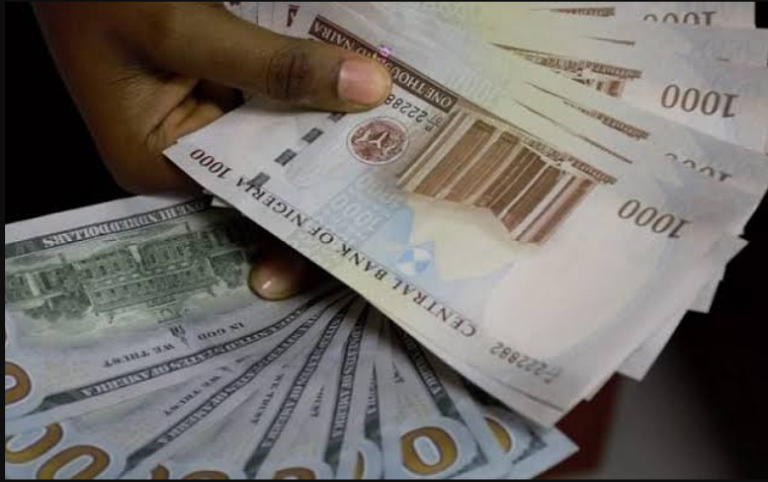The dollar remained under pressure on Wednesday after retreating from a nearly three-month high against major currencies, yet the naira failed to take advantage.
The naira trades near its lowest level against the US currency, despite an uptick in liquidity at Nigeria’s official FX market
After falling 0.29% on Tuesday, the U.S. dollar index, which compares the currency to six important rivals, was flat at 104.14 index points in the early hours of Wednesday.
Due to strong demand during the auction of new three-year notes, U.S. Treasury rates also declined from overnight highs, which helped to undermine the dollar.
The local currency settled near its all-time low at 1,482.57/$ while at the black market, it consolidated near N1,464 to the greenback. Bloomberg data highlighted that the naira lost nearly 40% of its value to the American dollar last week
After the central bank of Nigeria announced several steps that allowed the naira to trade more freely against the haven currency, dollar trading more than doubled on the country’s foreign currency market.
Based on data provided by the FMDQ OTC Ltd. exchange, the West African nation’s foreign currency market saw a total of $440 million moved on Friday, marking the highest amount since June 2022. In contrast, $157 million was received on Thursday.
Nigeria’s foreign exchange market is currently experiencing more demand, which is contributing to the naira’s ongoing slide in value.
Mr. Yemi Cardoso, the CBN Governor stated that the bank hired Deloitte to conduct a forensic audit and discovered that a portion of the $7 billion in outstanding claims was false. He promised that the unpaid FX liabilities would be settled quickly and that the bank would not reimburse customers for Forex requests that it failed to verify.
The CBN reported that $2.3 billion in verified Forex demands had been satisfied and that $2.2 billion remained in outstanding liabilities
Several factors have contributed to this situation, including increased capital outflows, excess naira from fiscal activities, speculative forex demand, and inadequate forex supply because of the CBN not receiving revenues from the sale of crude oil.
The goal of switching to a market-driven exchange rate was to dissuade currency hoarding and establish a stable macroeconomic environment. Nonetheless, arbitrage and speculation are blamed for short-term volatilities.
In a statement before the National Assembly, Cardoso claimed that there has been a rise in dollar liquidity in the nation’s currency market. “I want to emphasize that we are now at a turning point and bold reforms are underway across different segments of the economy. As of Monday, our market had over $800 million in deals. This is the first time in many years that it has achieved this level.” Positive results, I’m sure, are starting to show and will soon become more obvious” He added.
The CBN chief further informed Nigerian lawmakers that while the official mandate of the central bank was to maintain the value of the naira at a constant level, a stable foreign exchange market also required attention due to the country’s declining foreign exchange earnings and the growing demand for foreign currency by Nigerians for imports, school fees, and international travel.

